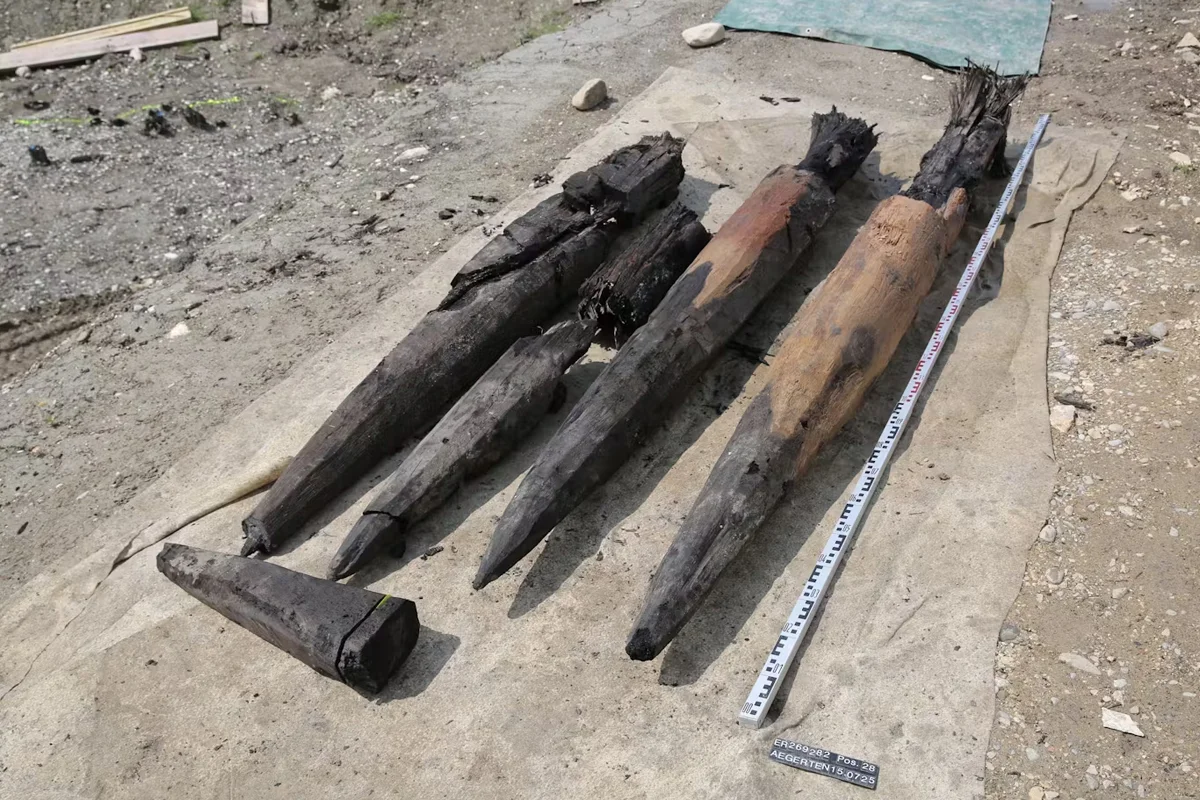Archaeologists from the Archaeological Service of the Canton of Bern have uncovered the remains of a 2,000-year-old Roman bridge during excavations near the River Zihl in Aegerten, Switzerland.
The discovery was made during construction works, revealing more than 300 oak piles still preserved in groundwater.
According to experts, these timbers supported a bridge during the Roman period that was part of the Jura Transversal, an important transport network that connected waterways and land routes in the region.
The bridge was originally situated at the gates of Petinesca (modern-day Studen), a Roman station settlement that served to ensure the maintenance of the highways and local security.
A dendrochronological analysis has determined that the bridge was built around 40 BC, shortly after the Roman conquest of the Helvetii, a tribal confederation that inhabited most of the Swiss plateau.

The study found that the bridge underwent numerous phases of repairs and reconstructions that lasted for centuries, with the final phase dating back to AD 369 during the reign of Emperor Valentinian.
Various archaeological treasures were also unearthed in a former riverbed where the bridge crossed, such as horseshoes, axes, collars, keys, coins, shoe nails, and even a fishing trident. Archaeologists suggest that the objects were intentionally discarded, possibly as a ritual deposit from the bridge.
“Particularly noteworthy is a well-preserved large plane made of wood and iron, which has been exceptionally preserved thanks to its storage in the oxygen-poor, damp soil. The finds are now being conserved and examined. They could provide valuable insights into everyday life during the Roman period,” said a representative of the Canton of Bern.
Header Image Credit : Joel Furrer
Sources : Canton of Bern





